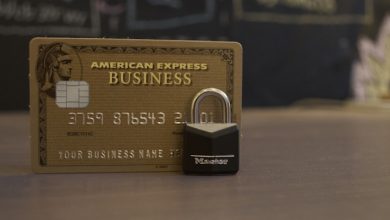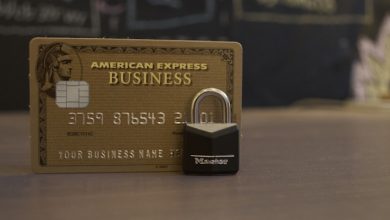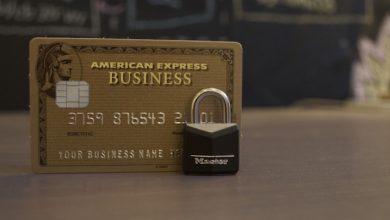A Beginner’s Guide to Understanding Crypto Wallets

- What is a crypto wallet and how does it work?
- Types of crypto wallets to choose from
- How to set up your first crypto wallet
- Importance of keeping your wallet secure
- Tips for managing multiple cryptocurrencies in one wallet
- Exploring the future of crypto wallets and their potential impact
What is a crypto wallet and how does it work?
A crypto wallet is a digital tool used to store, send, and receive cryptocurrencies. It works by generating pairs of public and private keys that allow users to access their digital assets on the blockchain. The public key serves as the wallet address, which is used to receive funds, while the private key acts as a password to authorize transactions.
There are different types of crypto wallets, including hardware wallets, software wallets, and paper wallets. Hardware wallets are physical devices that store the user’s keys offline, providing an extra layer of security. Software wallets, on the other hand, are applications or programs that can be accessed on computers or mobile devices. Paper wallets are physical documents that contain the user’s keys and are considered one of the most secure ways to store cryptocurrencies.
When a user wants to make a transaction using their crypto wallet, they need to sign it with their private key to verify their ownership of the funds. Once the transaction is signed, it is broadcasted to the blockchain network for validation. Miners then verify the transaction and add it to the blockchain, ensuring that the funds are transferred securely and transparently.
Overall, a crypto wallet is essential for anyone looking to invest in or use cryptocurrencies. It provides a secure and convenient way to manage digital assets and ensures that transactions are conducted safely on the blockchain. By understanding how crypto wallets work and choosing the right one for your needs, you can navigate the world of cryptocurrencies with confidence and peace of mind.
Types of crypto wallets to choose from
When it comes to choosing a crypto wallet, there are several different types to consider. Each type has its own set of features and benefits, so it’s important to understand the differences between them before making a decision.
- Hardware Wallets: Hardware wallets are physical devices that store your cryptocurrency offline, making them extremely secure. They are often considered the safest option for long-term storage.
- Software Wallets: Software wallets are digital applications that can be downloaded onto your computer or smartphone. They are convenient for everyday use but may be more susceptible to hacking.
- Web Wallets: Web wallets are online platforms that allow you to access your cryptocurrency from any device with an internet connection. While they are easy to use, they are also more vulnerable to security breaches.
- Paper Wallets: Paper wallets are physical documents that contain your public and private keys. They are a secure way to store your cryptocurrency, as they are not connected to the internet.
- Mobile Wallets: Mobile wallets are apps that you can download onto your smartphone for easy access to your cryptocurrency on the go. They are convenient but may not be as secure as other types of wallets.
Ultimately, the type of crypto wallet you choose will depend on your individual needs and preferences. It’s important to weigh the pros and cons of each type carefully before deciding which one is right for you.
How to set up your first crypto wallet
To set up your first cryptocurrency wallet, you need to follow a few simple steps. First, you will need to choose a wallet provider. There are many options available, so make sure to do your research and find one that meets your needs. Once you have chosen a provider, you can create an account by providing some basic information.
After creating your account, you will be given a public address, which is like your account number. This address is how others can send you cryptocurrency. It is essential to keep this address private and secure to protect your funds.
Next, you will need to set up security measures for your wallet. This may include setting up two-factor authentication, creating a strong password, and enabling any other security features offered by your wallet provider. Security is crucial when dealing with cryptocurrency, so take the time to ensure your wallet is as secure as possible.
Finally, you can start using your wallet to send, receive, and store cryptocurrency. Make sure to backup your wallet regularly to prevent any loss of funds. With these steps, you are now ready to start your journey into the world of cryptocurrency.
Importance of keeping your wallet secure
Ensuring the security of your wallet is crucial when it comes to safeguarding your crypto assets. By keeping your wallet secure, you can prevent unauthorized access and potential theft of your funds. There are several measures you can take to enhance the security of your wallet.
- Use a strong password: Create a complex password that includes a mix of letters, numbers, and special characters to make it harder for hackers to crack.
- Enable two-factor authentication: Adding an extra layer of security through two-factor authentication can significantly reduce the risk of unauthorized access to your wallet.
- Backup your wallet: Regularly backing up your wallet ensures that you can recover your funds in case your device is lost, stolen, or damaged.
- Avoid sharing sensitive information: Do not share your private keys, seed phrases, or any other sensitive information with anyone to prevent potential security breaches.
- Keep your software up to date: Make sure to update your wallet software regularly to patch any security vulnerabilities that could be exploited by cybercriminals.
By following these security best practices, you can minimize the risk of falling victim to fraud or theft and protect your hard-earned crypto assets. Remember, the security of your wallet is in your hands, so take the necessary precautions to keep it safe.
Tips for managing multiple cryptocurrencies in one wallet
Managing multiple cryptocurrencies in one wallet can be a daunting task for beginners. However, there are some tips that can help simplify the process and ensure that your digital assets are secure.
First, it is important to choose a wallet that supports multiple cryptocurrencies. Look for wallets that are compatible with a wide range of coins and tokens to ensure that you can store all of your investments in one place.
Next, consider using a hardware wallet for added security. Hardware wallets are physical devices that store your private keys offline, making them less vulnerable to hacking and theft.
Another tip is to keep track of your holdings using a cryptocurrency portfolio tracker. These tools allow you to monitor the value of your investments in real-time and make informed decisions about buying, selling, or trading.
Finally, be sure to regularly update your wallet software and backup your private keys. This will help protect your assets in case of a security breach or hardware failure.
Exploring the future of crypto wallets and their potential impact
The future of crypto wallets is an exciting topic that is constantly evolving as technology advances. These digital wallets have the potential to revolutionize the way we store and transact cryptocurrencies. With the rise of decentralized finance (DeFi) and non-fungible tokens (NFTs), the demand for secure and user-friendly crypto wallets is higher than ever before.
As we look ahead, it is clear that crypto wallets will continue to play a crucial role in the adoption and mainstream acceptance of cryptocurrencies. Innovations such as multi-signature wallets, biometric authentication, and hardware wallets are already shaping the future of crypto storage. These advancements aim to enhance security, convenience, and accessibility for users of all levels of expertise.
The impact of crypto wallets extends beyond just storing and sending cryptocurrencies. They also serve as a gateway to decentralized applications (dApps) and smart contracts, allowing users to interact with the broader blockchain ecosystem. As more industries and individuals embrace blockchain technology, crypto wallets will become indispensable tools for managing digital assets and participating in the new decentralized economy.



